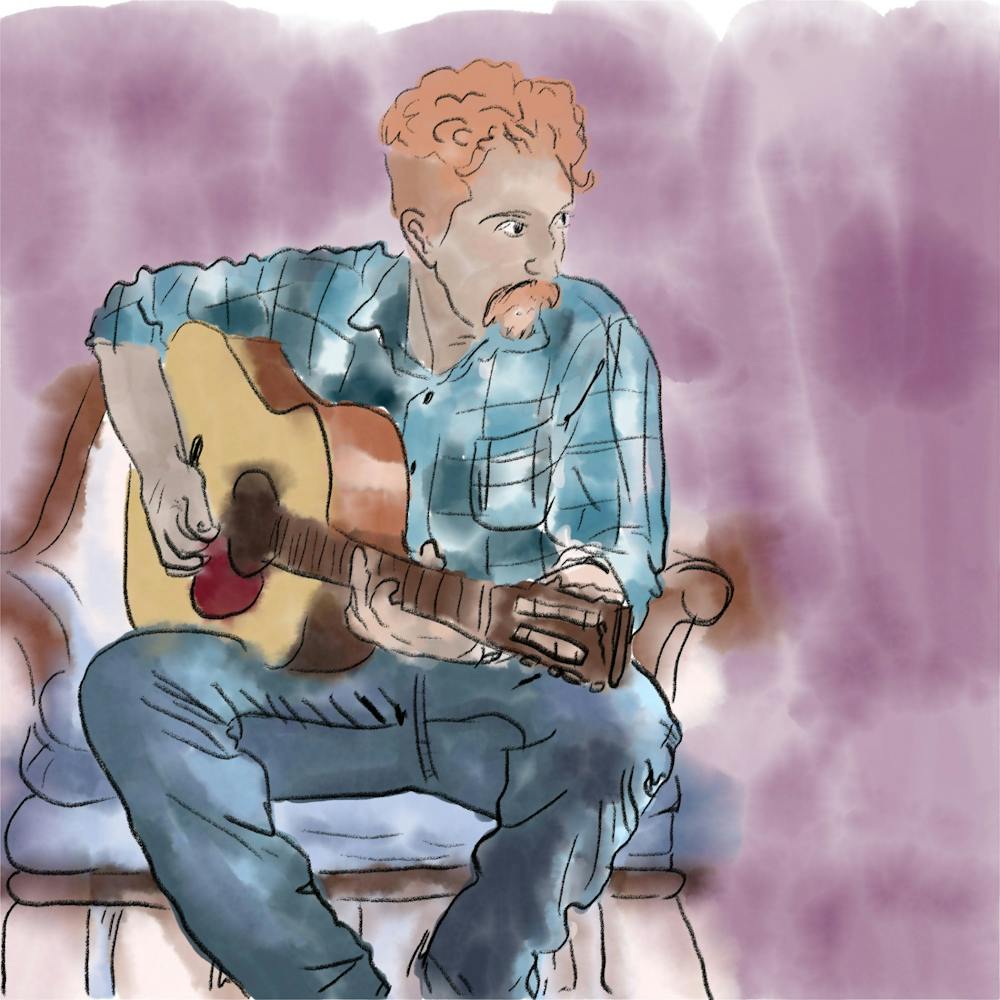Long Violent History only has one song with words, but it says a lot.
The album, a full and bright near-instrumental, was released with a six-minute introduction from Tyler Childers himself. He sits in front of a camera and explains the concept behind his unusual, surprise release. He begins with a connection to his listeners: he is in no place to be “preachy,” but he is disappointed.
While specifically referencing his white, rural followers, he stares into the camera, a Kentucky accent hanging on every word, and asks how they can stay silent while Breonna Taylor, from Kentucky herself, is shot in her sleep. He poses scenarios that put into perspective the kind of experiences Black Americans have, and wonders how anyone can continue to excuse it. He begs for empathy, to understand why the phrase “Black Lives Matter” means so much to so many.
The instrumental tracks, Childers says, are to build a “soundscape” for the listener, and he successfully does so. “Midnight in the Water,” the most heart wrenching of the instrumentals, creates a whole atmosphere. The fiddle whines a beautiful scene; one of prolific sadness and hardship. But with hardship comes tradition, and that tradition is seamlessly plucked from an upright bass and blown from the open mouth of a jug. What Childers wants to leave in the past, however, is generational racism.
The final song — the only non-instrumental on the album and the title track — is built upon by the eight before it. It explains every note that appears to be between the lines and clears up any question a listener might have had: racism should no longer be tolerated. At least, he won’t tolerate it.
“Could you imagine just constantly worryin' / Kickin' and fightin', beggin' to breathe?” He asks. While the song is not subtle, subtlety isn’t working on his target audience. He knows that interrupting willful ignorance and communicating to people who will listen to him will do more than he could by being subtle.
‘Long Violent History’ is a passionate plea for justice that goes beyond politics. It reaches out to grip his listeners’ souls, empathizing with Childers’ white, rural fans in a way that politicians cannot. Someone so deeply embedded in rural culture embracing a rally cry for racial justice communicates that it is possible, in fact, to embrace tradition while thinking critically about it.






